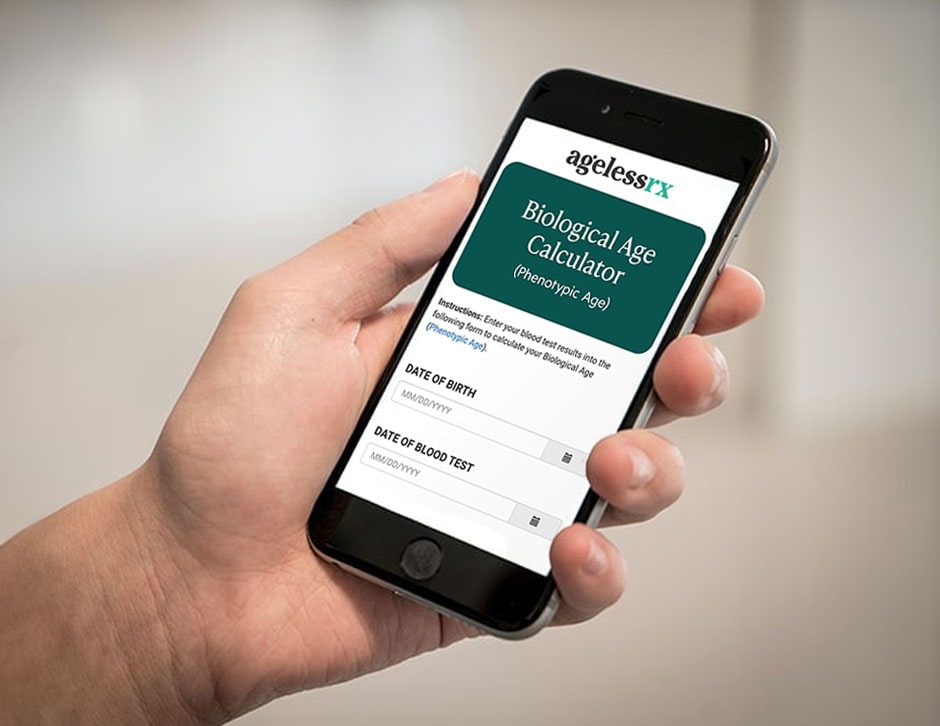
Quick overview of what you’ll learn from this blog post:
- What is ‘biological age’?
- How you can calculate your biological age
- How we can help you track your biological aging
When someone asks how old you are, we all know they’re referring to how many times you’ve been around the sun, or how many candles they should be sticking on top of your birthday cake.
But perhaps a more relevant question is how old are you biologically. Because our chronological age and biological age (the age of our health) can be quite different.
Over the last decade, science has become a lot better at being able to calculate a given person’s biological age and remaining lifespan. The idea of a clock ticking down until your death is a pretty grim thought, which is why it’s fitting that one of these clocks is called the GrimAge clock.
Created by the ‘Godfather of Epigenetic Clocks’ Dr. Steve Horvath, GrimAge is one of several methylation-based epigenetic clocks that can predict age-related clinical phenotypes and all-cause mortality. So, what does that mean?
Remember back to biology at high school when you learned that DNA is like a long, twisted rope? Well, this rope of chemicals is tightly wound around a big protein structure called a ‘histone’. Also attached to the ‘rope’ of your DNA (and to your histones) are extra chemical groups called ‘epigenetic markers’, or ‘epigenetic modifications’. One type of these epigenetic markers is called ‘methyl groups’, and the location of these methyl groups can be analyzed by artificial intelligence algorithms (or ‘epigenetic clocks’) to reveal how quickly or slowly you’re aging. Some can even help predict your risk of various age-related diseases or conditions.
While epigenetic clocks are the most accurate way to estimate your biological age, they are not the only way. Doctors and scientists can also analyze specific blood factors (commonly referred to as biomarkers), as well the length of your telomeres and your basal metabolic rate (BMR) to predict your ‘real’ age. However, these last two are a fair bit less accurate than the methylation or blood-marker-based testing methods, which is something to keep in mind when considering which testing method is right for you. To learn more about available tests, and which may be right for you, check out our helpful comparison here.
Curious how to get started? AgelessRx has several ways to help you estimate and track your biological age. We offer an at-home methylation saliva test (starting at $99), a lab-based phenotypic blood test (starting at $75), and an online phenotypic calculator (free, but requires previous blood test results).
Ideally, we all want our biological age to be lower than our chronological age, so if you’re curious to find out yours – or track the progress of your longevity interventions – why not take a test?
Of course, if you have any questions at all, please don’t hesitate to get in touch at 650-503-9990 or at info@agelessrx.com.
Here’s to many, many more birthdays.
